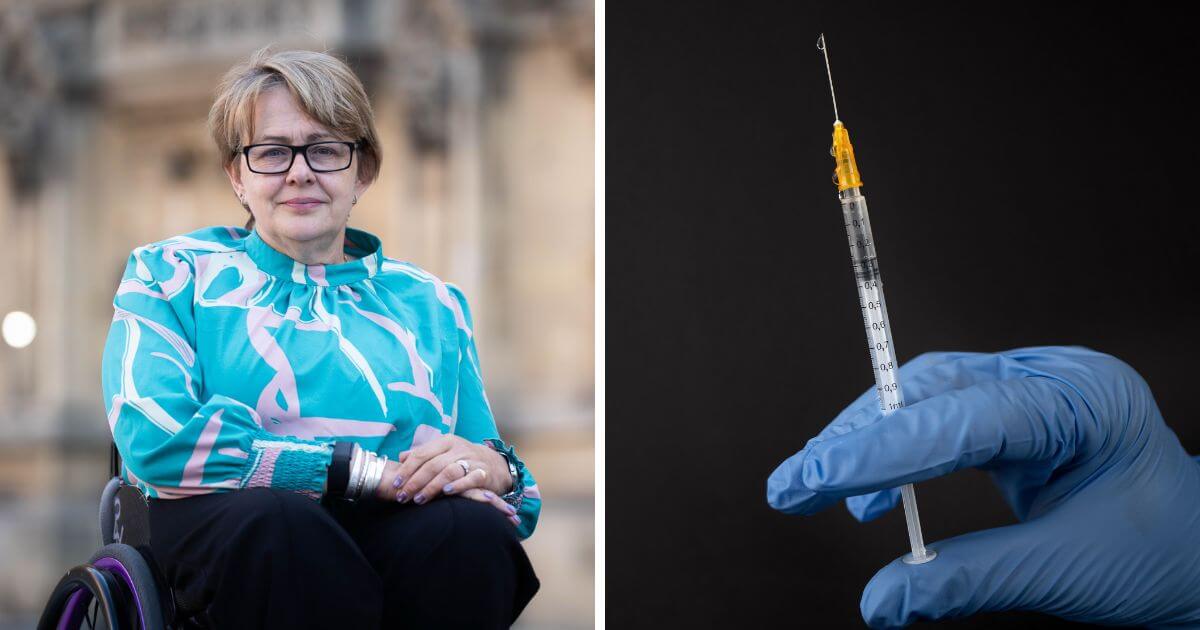Tanni Grey-Thompson, a gold medal-winning Paralympic athlete who now sits in the House of Lords, has revealed she received abusive emails that accuse her of being “responsible for people dying in pain” due to her opposition to Kim Leadbeater’s assisted suicide Bill.
Speaking in the build up to the Second Reading of the Terminally Ill Adults (End of Life) Bill in the House of Lords later this week, Baroness Grey-Thompson said “I’ve had some incredibly abusive [emails] saying that I’m responsible for people dying in pain, and it will be on me”. “Some of the emails are really hard to read”, she said, adding “There is some really unpleasant language that is used”.
The eleven-time Paralympic gold medallist, who shared her “intention to bring a number of amendments” to the Bill, highlighted the need for better end-of-life care, rather than focusing on helping people to die, saying “[W]e should be having proper specialist palliative care”.
Peer says Bill has left people with disabilities “absolutely terrified”
The Peer also shared her concerns about coercion under the Bill, which, she said, “fundamentally changes our relationship with medicine, with doctors”. Baroness Grey-Thompson has repeatedly spoken against the Leadbeater Bill, often regarding its potential effects upon people with disabilities, warning that people with disabilities who have contacted her are “absolutely terrified” at the prospect of the legalisation of assisted suicide in England and Wales.
She said “Every disabled person who writes to me – and they do write quite a lot – is absolutely terrified about what this means for them”.
Her latest comments come after MPs voted by 314 to 291 in favour of the Terminally Ill Adults (End of Life) Bill at Third Reading in the House of Commons, amidst growing cross-party concern about the risks the Bill poses to vulnerable people and continued opposition from people with disabilities and disability groups.
No major disability advocate groups in the UK – including Disability Rights UK, Scope and Not Dead Yet – support a change in the law to introduce assisted suicide.
“This Bill would put a price on my head”, says Peer
Like Baroness Grey-Thompson, other Peers have shared their opposition to the Bill. Lord Shinkwin, who himself has a disability, voiced his concern that Kim Leadbeater’s Bill “would put a price on my head”.
“I am a disabled person”, he said. “I cost the NHS, over the course of my lifetime, probably several million pounds to keep me alive”.
“This Bill would put a price on my head – on the head of so many disabled people”.
When asked if he feared he would not be alive today if the assisted suicide law were in force, Lord Shinkwin said “I think you have hit the nail on the head”.
“I was in intensive care a few months ago, and had a doctor come over to me when I was extremely vulnerable and said, ‘Have you considered assisted dying?’, I would have felt under real pressure to do that”.
Spokesperson for Right To Life UK, Catherine Robinson, said “It is disgraceful that Baroness Grey-Thompson has received abusive emails after warning of the dangers of legalising assisted suicide. Her important message underlines the need to focus on protecting and supporting the vulnerable, rather than encouraging them to end their lives”.
“As the Bill approaches Second Reading in the House of Lords, it is vital that Peers see sense and reject it outright, for the sake of society’s most vulnerable who are terrified that it may become law”.












